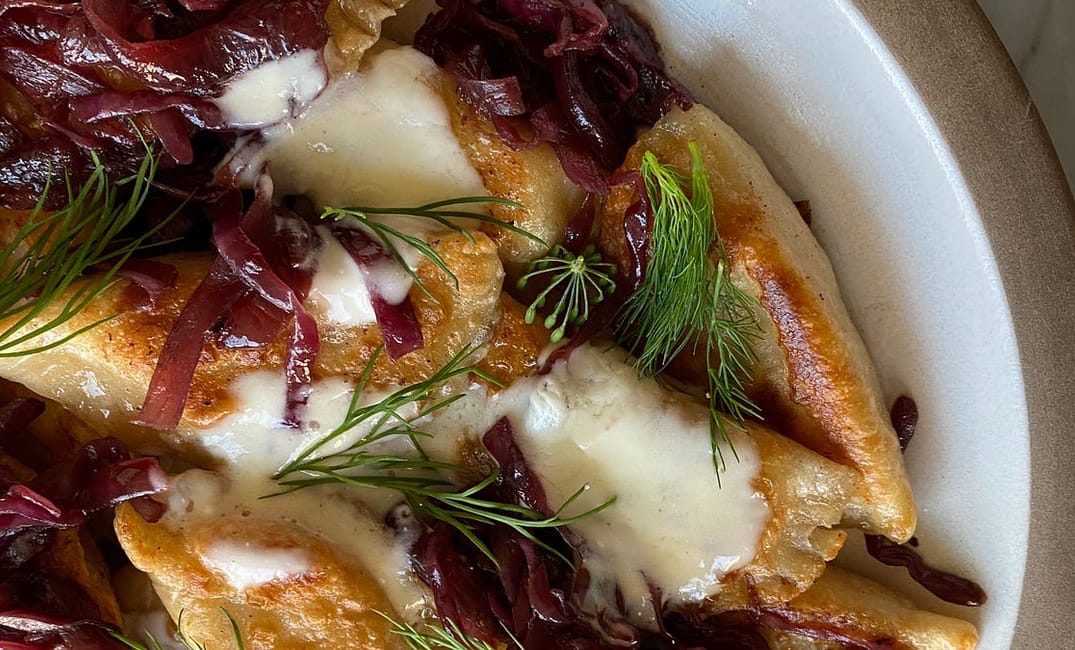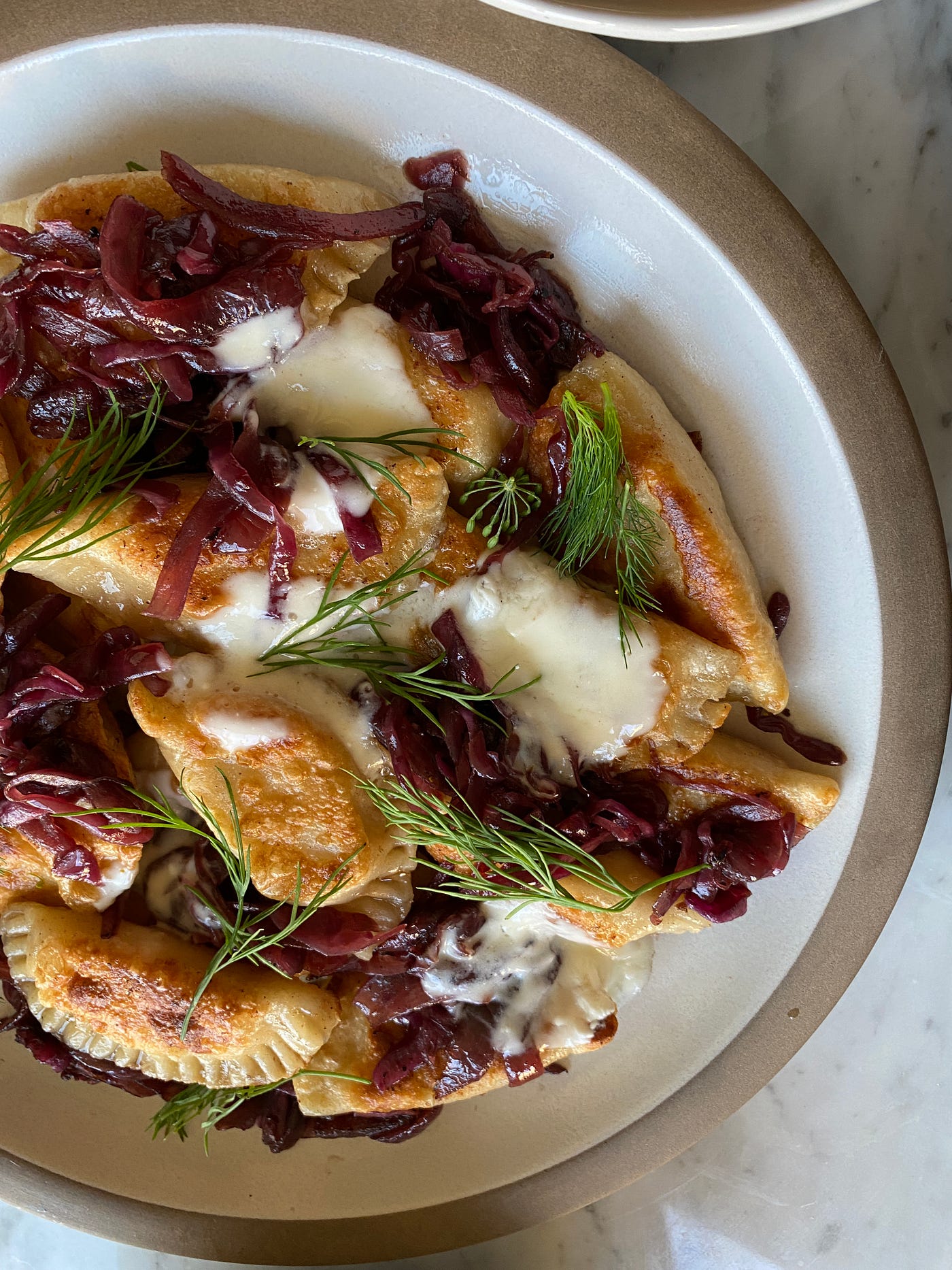
It was a cool evening in June. I popped downstairs to the foyer of my apartment building, where a fellow in a face mask and gloves stood carrying a large bag of food in to-go containers. We politely greeted one another, and he replied, “Thanks so much for supporting us!” I peeked over the stairway ledge and saw a woman standing below next to a blue Nissan; she waved enthusiastically at me. On the way back to my apartment, I quickly Venmo’d $20 to an account called @sfchefshuffle.
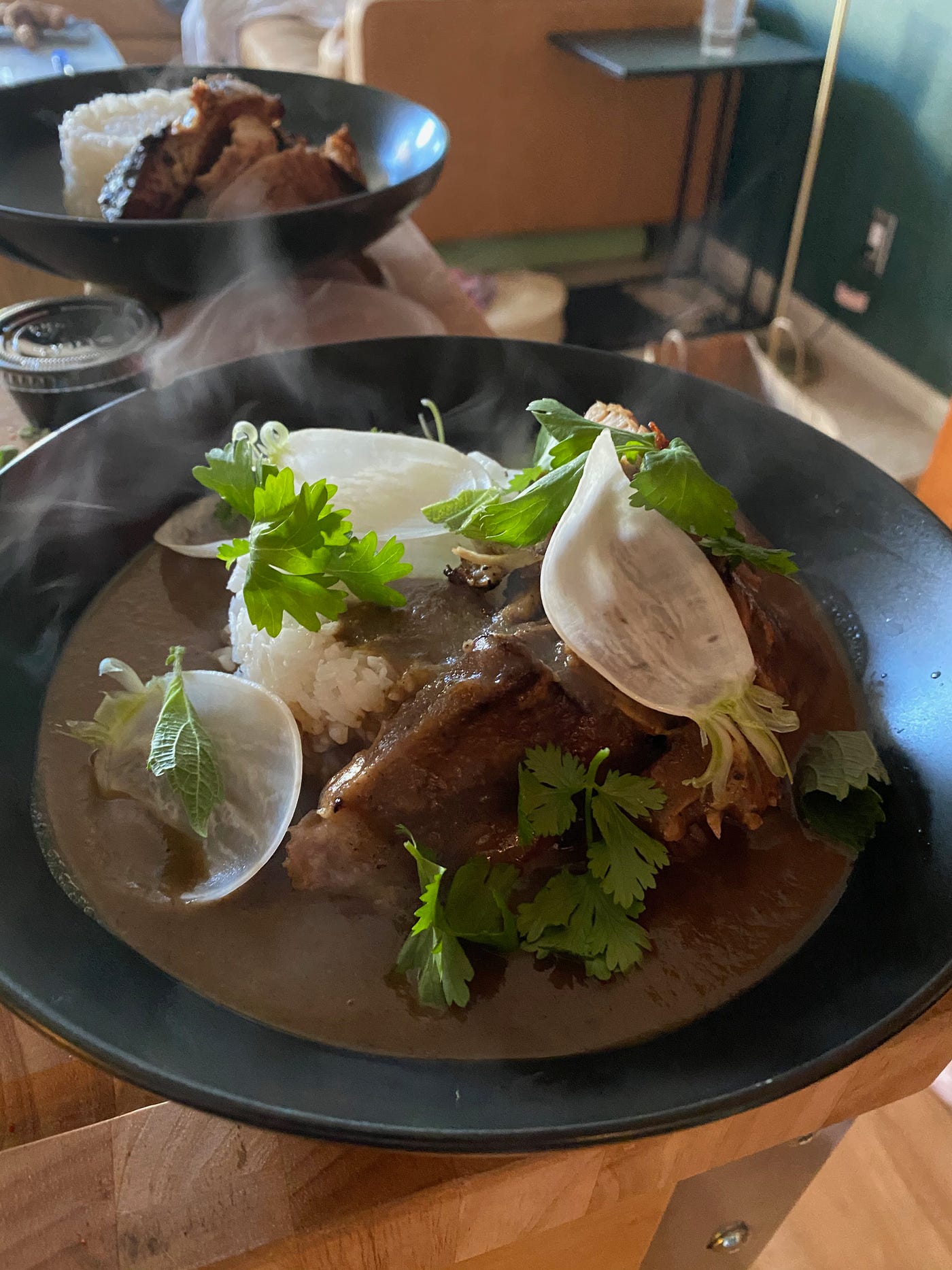
My boyfriend and I stood over our kitchen island reading the printed menu and directions for the evening’s feast: “A Southern Indian Delight: A Taste of Pundi Curry featuring Roast Pork by Chef Nupoor Kapse.” The dish is one of Kodava/Coorgi origin, according to Kapse. Above the directions, she explains, “They’re a warrior clan and would typically hunt for wild boar and make this dish as a curry flavored with dark roasted spices and seasoned with black vinegar.” Our mouths were already watering.
Kapse is a veteran of several fine-dining restaurants, including State Bird Provisions. She also happened to be the woman standing by the blue Nissan that night. She and State Bird Provisions had to pivot quickly after San Francisco issued a mandatory stay-at-home order on March 16 due to Covid-19. No one was prepared for it nor were they ready for the subsequent extensions of said order. According to Yelp, more than 5,000 businesses have closed since the pandemic started; 2,000 of them have closed permanently — 300 of which were restaurants.
Sign up for The Bold Italic newsletter to get the best of the Bay Area in your inbox every week.
The components of our dinner were neatly packed into assorted plastic containers, including our rum cocktail, the Baba O’ Fashioned. The directions to assemble our dinner were straightforward: Microwave the rice and curry for a few minutes; reheat the pork by searing in a medium-high pan with a little oil. For the cocktail, we simply stirred, poured over ice, and topped with the provided garnish of orange peel. The dessert was a delightful surprise. Ras malai is a cheese-curd puck flavored with saffron and cardamom from the east coast of India in Bengal. We even broke out our tweezers and Heath plates to give the dish the attention it deserved. The texture was that of a dense ricotta cheese and tasted of rose water, spices, and citrus. We were so thrilled to have a restaurant experience from the comfort and safety of our own home during the shelter-in-place order.
I spoke with Kapse about her time during the shelter-in-place order and how she’s managing. “As of August, there’s definitely a looming sense of ‘what next?’” she says. “But [I’m] also happy to have cooked my way through the pandemic at home, trying out all the various projects and recipes that I wasn’t afforded the time to do earlier.”
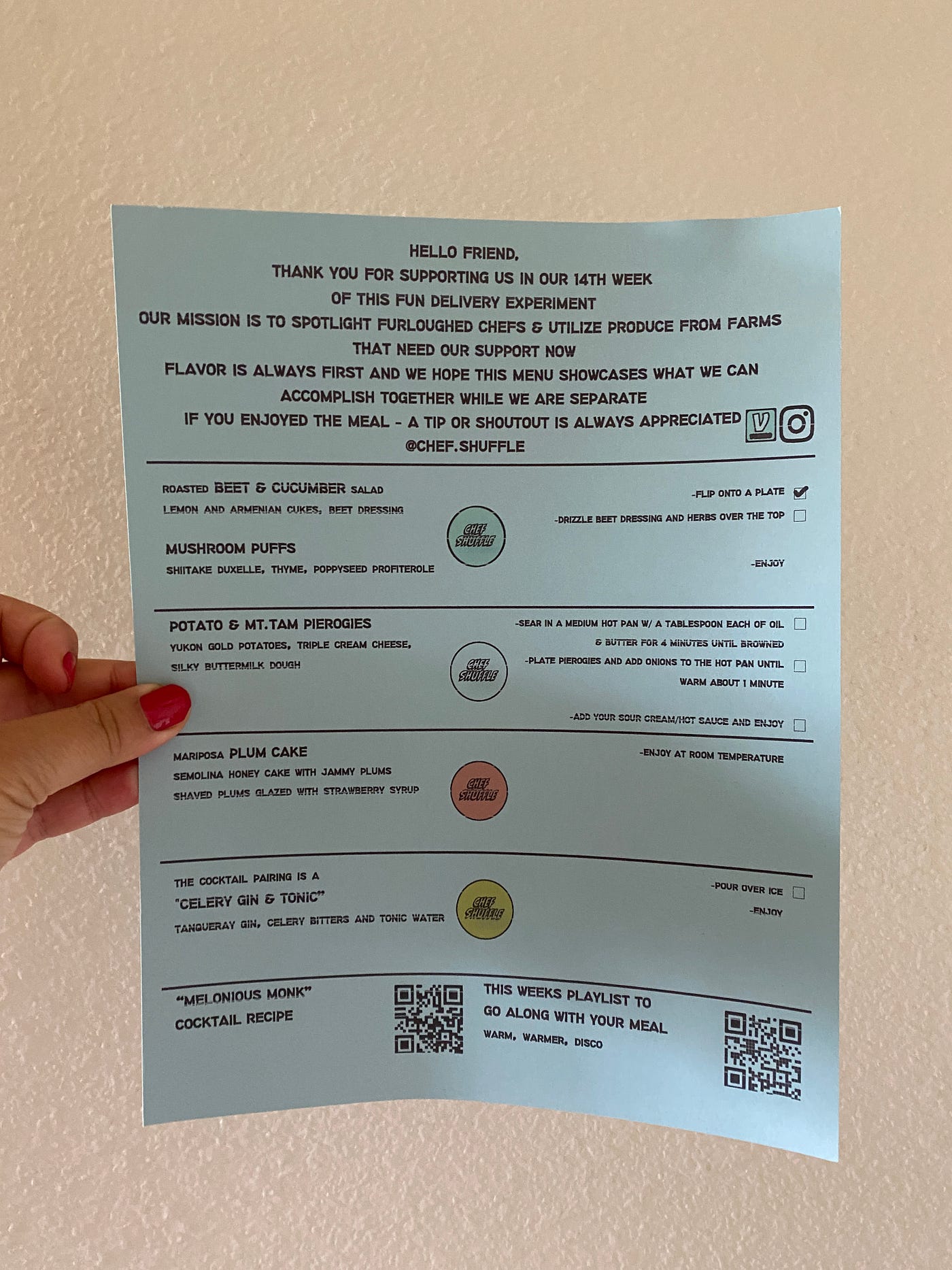
I spoke to Devin Hakola, the founder of SF Chef Shuffle, the pop-up delivery concept designed to feature a different furloughed chef every week. The chefs hail from some of the best fine-dining institutions in San Francisco. Hakola formerly cooked at The Progress, State Bird Provisions, and Barbarossa. He said the goal is twofold: pay the rotating chefs what he can, and the chefs get the opportunity to cook their own food, not someone else’s. Doing a pop-up where the menu — let alone the chef — changes every week isn’t easy. In fact, it’s a little crazy. “I can’t just chill and wait for next year. … I hustle every week to try not to only cook the best food I can but also sell, graphic-design, deliver, and wash dishes. Whatever needs to get done,” said Hakola.
After speaking to Hakola, I got a sense of what it takes to produce this pop-up without the use of a commercial kitchen. First, the menu-writing takes place on Monday morning. After the menu is set, Hakola designs a custom graphic and posts it to Instagram to get the 1,100 followers excited about the new menu for Sunday. Throughout the week, he’s collecting orders via Instagram messages and payments on their Square site. Then, it’s time for the testing and tasting for deliciousness and transportability.
Could this be the future of fine dining? One that is done from humble apartment kitchens instead of state-of-the-art restaurants?
Saturday arrives. Hakola and the featured chef head to the Ferry Plaza Farmers Market, where they purchase produce for the all-day prep in a designated home kitchen ahead of their Sunday delivery. Generally, they plan on making a maximum of 40 orders; Hakola says they’ve sold out almost every week they’ve been operating. Even without a standard commercial kitchen, the team keeps the highest level of cleanliness possible. All food is then packed, labeled, and bagged for transportation along a designated route all across the city. We typically order two servings ($40 each) plus two cocktails (which are $10 a pop). This brings our total to about $120 bucks with a tip — incredibly reasonable given the quality of ingredients and creativity.
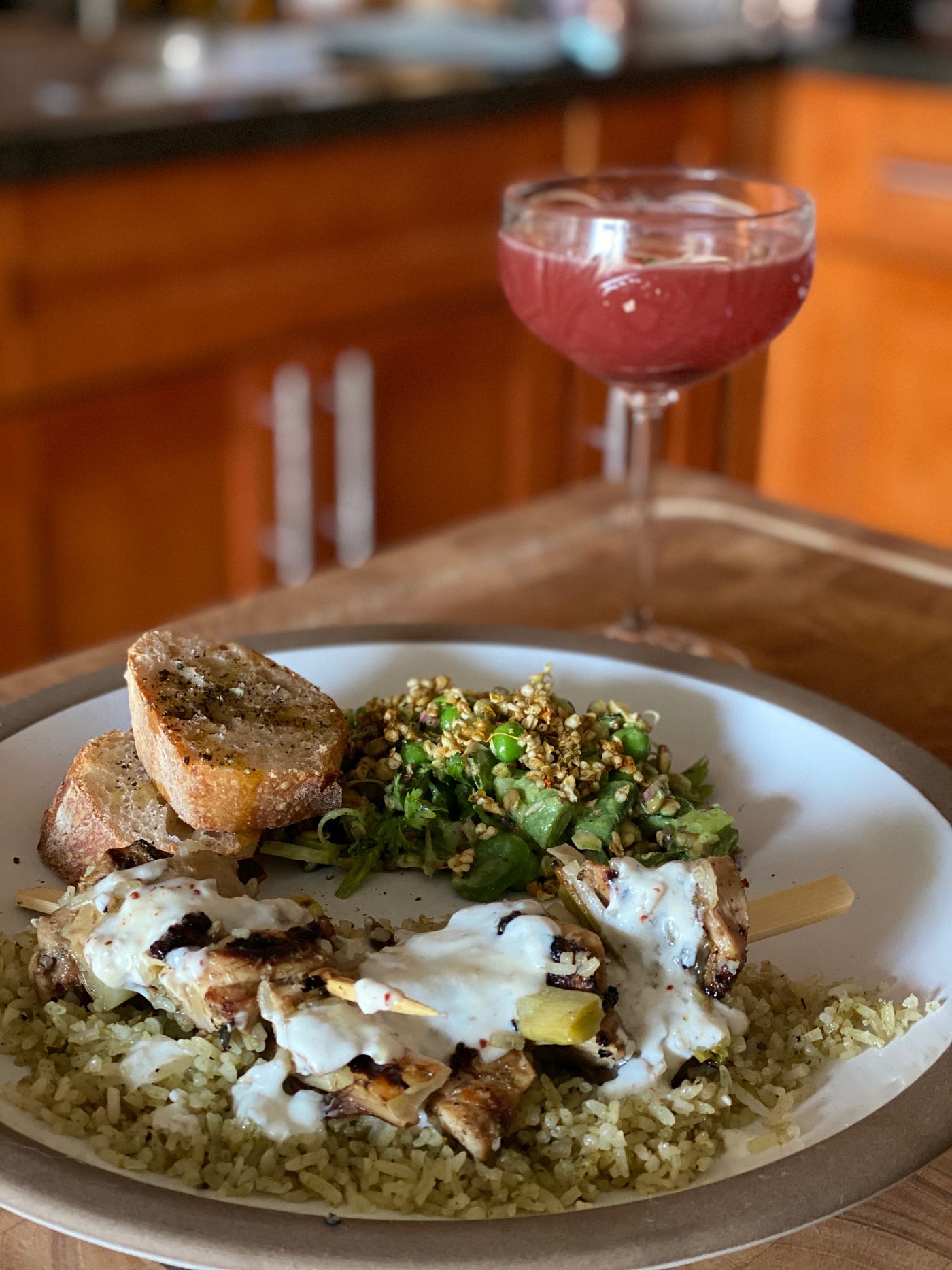
Who were some of the other chefs featured in this new venture? Well, there was chef Spencer Horovitz, formerly of Al’s Place and The Progress. Horovitz has been featured in the lineup several times. He dreamed up an Israeli-themed dinner featuring grilled chicken with yogurt sauce, schmaltz rice pilaf, spring bean and puffed rice salad, and tahini brownies with strawberries. Recently, chef couple Sarah Whitman and Michael Andreatta (formerly of The Commonwealth and Fort Point Beer) were also featured. Together they created an Eastern European homage featuring Mount Tam pierogis, mushroom puffs, cucumber and beet salad, roasted paprika pork belly, and plum cake.
Could this be the future of fine dining? One that is done from humble apartment kitchens instead of state-of-the-art restaurants? During a recent AMA on Instagram Stories, a follower asked San Francisco Chronicle restaurant critic Soleil Ho about the trend of home cooking during the pandemic. She sounded excited about the prospect: “Some of the most original and exciting meals that I’ve been able to eat during the pandemic have been made by people who can’t access commercial kitchens by traditional means.” She tagged @brokeasscooks, a pop-up and catering business that started grilling jerk chicken in their West Oakland backyard.
The Broke Ass Cooks trio is Bilal Ali, Hoang Le, and Keone Koki, all of whom lost their jobs as a result of restaurants closing during the pandemic. “There’s no jobs for the foreseeable future, so we were like, yeah, we’re broke and we don’t really have a choice right now,” said Ali to SFGate, “we have to make something for ourselves.”
Where do we go from here? Since March, many of San Francisco’s fine-dining institutions have either closed or have pivoted to other forms of food service, almost all toward a fast-casual or takeout model, with few locations able to do outdoor dining. Take two-Michelin-starred Lazy Bear. Their normally wildly creative tasting menu has switched to a “commissary” format, serving up food like chicken biscuits and cinnamon rolls and prepared foods like fresh pasta, duck confit, and cold brew coffee. A dry-aged beef smash burger with the works costs $15; compare that to their regular dinner tickets, which cost $165–$195.
Today, 54% of San Francisco’s businesses remain closed, as reported by the San Francisco Chamber of Commerce via SFGate. Additionally, the Department of Labor reported a total of 1.19 million people filed new unemployment claims last week, down from 1.43 million the week before, and the peak in March of 6 million.
This pandemic has highlighted both the fragility of the food supply chain and the restaurant industry that employs millions of people who, according to Hakola, “are professionals who want nothing more than to feed people the best they can and just survive at the moment.” The margins of running a restaurant in any city, let alone in San Francisco, are incredibly thin. Even larger chains have sought to consolidate; Pizza Hut and Starbucks have closed over 1,800 of their locations. The food-service industry is hemorrhaging. It’s an industry that is riddled with systemic issues.
In a city where restaurants have to pay exorbitantly high rents just to keep the lights on, what will the future of fine dining be? Why even save the institution? For me, these kinds of restaurants are part of what makes San Francisco an exciting and cosmopolitan city. I hope that our future restaurant culture is one that allows chefs of all backgrounds to make a living wage while cooking delicious and creative food.
“Hospitality workers are some of the most resilient people there are, but this pandemic has toppled everything on its head. Life as we know it is no more. My sincere hope is that everyone is able to come out of this unprecedented time somehow intact and hopefully stronger than ever,” said Kapse.



